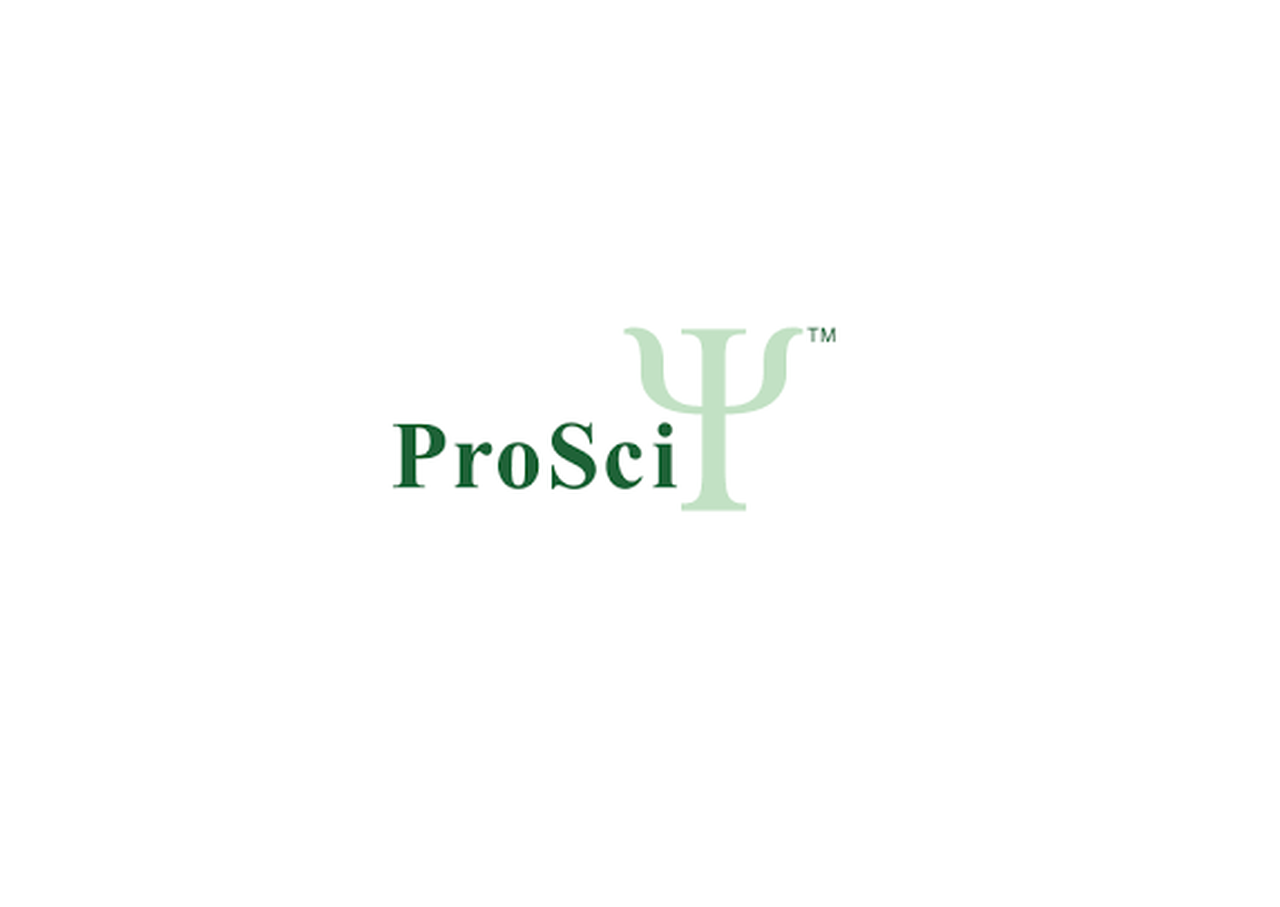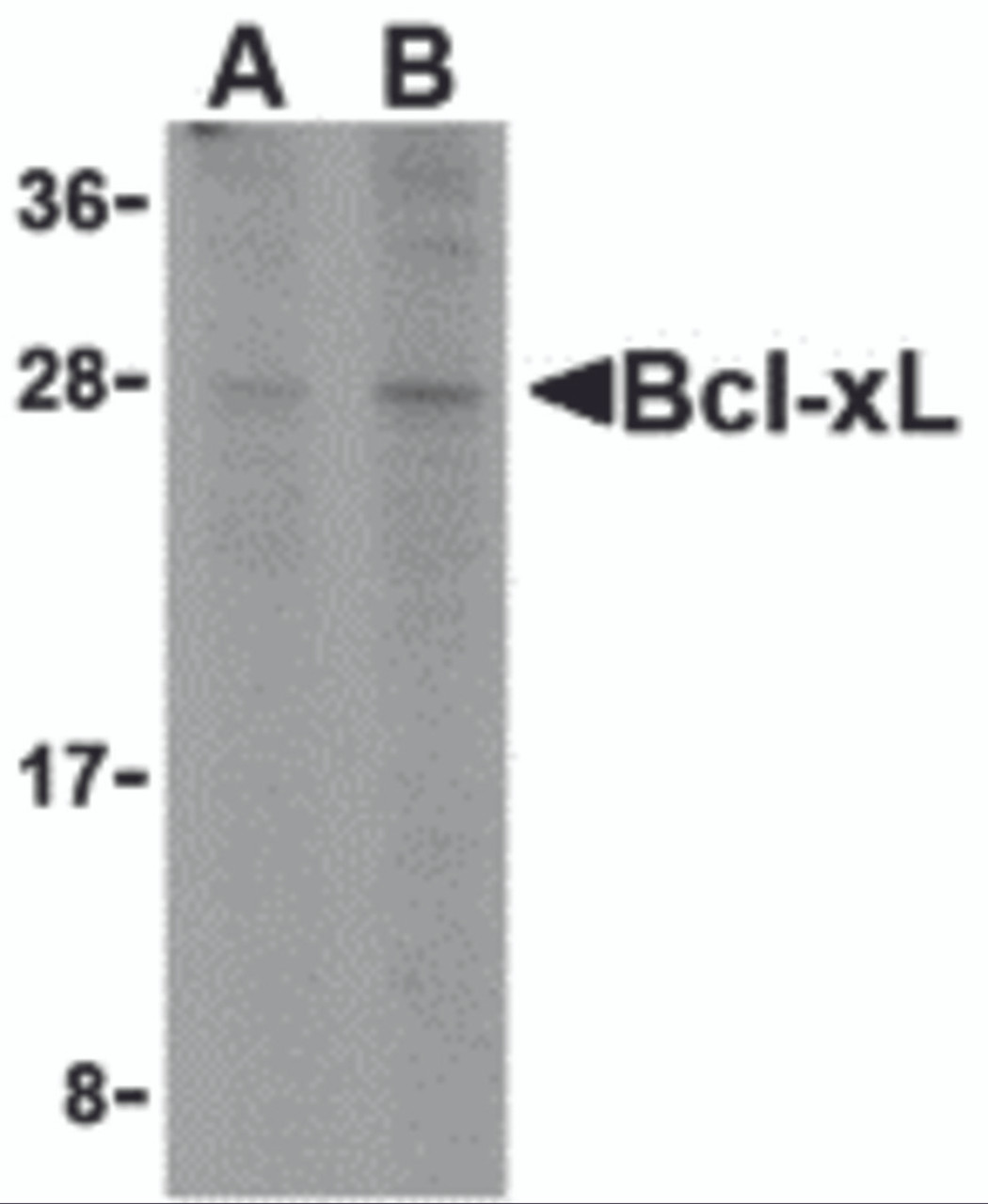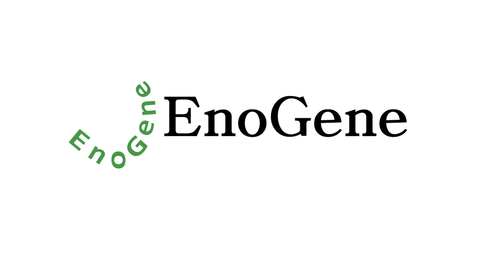Product Description
Bcl-xL Antibody | 3341 | ProSci
Host: Rabbit
Reactivity: Human
Homology: Predicted species reactivity based on immunogen sequence: Pig: (100%) , Rat: (100%) , Mouse: (100%)
Immunogen: Bcl-xL antibody was raised against a peptide corresponding to 14 amino acids near the carboxy terminus of human Bcl-xL.
The immunogen is located within the last 50 amino acids of Bcl-xL.
Research Area: Apoptosis
Tested Application: E, WB
Application: Bcl-xL antibody can be used for detection of Bcl-xL by Western blot at 1 to 2 μg/mL.
Antibody validated: Western Blot in human samples. All other applications and species not yet tested.
Specificiy: N/A
Positive Control 1: Cat. No. 1203 - A549 Cell Lysate
Positive Control 2: N/A
Positive Control 3: N/A
Positive Control 4: N/A
Positive Control 5: N/A
Positive Control 6: N/A
Molecular Weight: N/A
Validation: N/A
Isoform: N/A
Purification: Bcl-xL Antibody is supplied as ion exchange chromatography purified IgG.
Clonality: Polyclonal
Clone: N/A
Isotype: IgG
Conjugate: Unconjugated
Physical State: Liquid
Buffer: Bcl-xL Antibody is supplied in PBS containing 0.02% sodium azide.
Concentration: 1 mg/mL
Storage Condition: Bcl-xL antibody can be stored at 4˚C for three months and -20˚C, stable for up to one year. As with all antibodies care should be taken to avoid repeated freeze thaw cycles. Antibodies should not be exposed to prolonged high temperatures.
Alternate Name: Bcl-xL Antibody: BCLX, BCL2L, BCLXL, BCLXS, Bcl-X, bcl-xL, bcl-xS, PPP1R52, BCL-XL/S, BCLX, Bcl-2-like protein 1, Apoptosis regulator Bcl-X, Bcl2-L-1
User Note: Optimal dilutions for each application to be determined by the researcher.
BACKGROUND: Bcl-xL Antibody: Apoptosis plays a major role in normal organism development, tissue homeostasis, and removal of damaged cells. Disruption of this process has been implicated in a variety of diseases such as cancer. Bcl-xL is a member of the Bcl-2 family of proteins that are critical regulators of apoptosis. These can be divided into two classes: those that inhibit apoptosis and those that promote cell death. Bcl-xL is an anti-apoptotic mitochondrial protein related to Bcl-w and the major transcript of the bcl-x gene. Its high expression in tumors is correlated with advanced disease and poor prognosis. Bcl-xL expression level increases in response to several stimuli such as ionizing radiation and treatment with chemotherapeutic agents.
 Euro
Euro
 USD
USD
 British Pound
British Pound
 NULL
NULL










